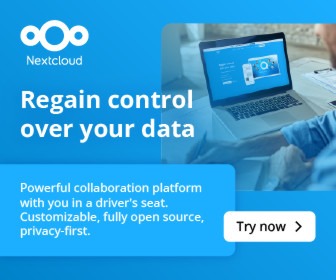On Friday, two business journals ran stories on Oracle’s latest tactic for selling its lagging cloud services. The articles should serve as a warning to business readers, as they say in effect, “If you’re using Oracle software to run your businesses, you should consider running an internal audit to ascertain you’re in compliance, because you don’t want to be caught out of compliance if Redwood City’s goon squad pays a visit.”

In its headline, Business Insider says Oracle is using an “ugly ‘nuclear option.'” Fortune’s headline is a bit more understated: “Oracle reportedly wields audits, license disputes to push cloud agenda.” However genteel Fortune’s headline, writer Barb Darrow cuts quickly to the chase: “Anyone who has ever met an Oracle sales person knows from a high-pressure sale.”
The story actually broke about a month ago, when Forbes asked: “Is Oracle Using Legal Pressure To Increase Cloud Sales?”
Indeed it is, and its tactics are beginning to resemble an extortion racket, with suited Oracle thugs threatening, “Nice database you have here. It’d be a shame if something happened to it.” The leverage the company has to make this tactic work is our old pal, vendor lock-in.
Most of us, unless we work for a large corporation, never have to deal with Oracle, other than using one of its open source products, like MySQL or Java, which it inherited from is acquisition of Sun Microsystems several years back. But in the IT departments of the corporate world, it’s just as likely that Oracle products are running on the company servers as those from our friends at Microsoft. As writer Dan Woods observes in the Forbes article, in the business world “running Oracle software is not so much a choice as a necessity.”
The problem for Oracle is that it’s finding it difficult both to find new customers for its proprietary stack and to keep its installed base from fleeing, as the company’s flagship products are under increasing pressure from open source software and from the cloud.
Jack Clark wrote about the pressure from open source about a month ago in an article for BloombergBusiness. He points to Powa Technologies Ltd., a mobile payments company located in the U.K., which about a year ago began moving from Oracle and IBM products to open source software. The limited migrations attempted so far have proved to be so successful that the company is now in the process of moving almost all of its operations to free software.
As the company’s CEO, Dan Wagner, said, “They [open source applications] scale and operate extremely well and they don’t cost anything.”
Open source software also doesn’t come with the threat of visits from the software vendor’s goon squad for a software audit.
To stem the flow of the installed base away from Oracle and into the arms of open source and other companies’ cloud services, Oracle has been pushing its own cloud. The trouble is that it was late to the cloud game, and has been playing catch-up to compete with IBM, Salesforce, Amazon and Microsoft’s established services.
The company has been working to boost its cloud on many fronts. On Friday, for example, Investopedia reported that the company has partnered with Xamarin for its new Mobile Cloud Service, giving Oracle access to a massive amount of mobile app development resources, which includes the delivery of iOS and Android mobile apps by way of the cloud.
But that’s not the only way that Oracle is seeking to boost its cloud business. It’s also playing down and dirty with its installed base, using software audits as its tool.
To business users of proprietary software, the audit is just part of the process of doing business with proprietary vendors, with the vendors’ right to audit, to make sure that users are in compliance with the terms of their contracts, written into virtually all business software contracts. For Oracle and other proprietary vendors, the audit is often used as a sales tool, as explained in the Forbes article:
“Oracle’s internal name for what happens in the compliance process is summarized by the acronym ABC, which stands for Audit, Bargain, Close.”
These days, Oracle is using audits to aggressively sell cloud services to its existing base — even to customers who have no interest in moving to the cloud. One of the methods used is to lower massive penalties for being out of compliance in exchange for signing up for cloud services. Another method takes advantage of vendor lock-in by using the “breach notice,” which is what Business Insider meant by “nuclear option,” as it gives the customer the chance to walk away from a costly contract scot-free.
“If Oracle thinks the customer is really abusing the terms, it whips out the ‘breach notice,’ which warns a customer that they are in violation and must stop using all Oracle software in 30 days.”
Because the customer is locked-in to Oracle’s products and couldn’t migrate away in thirty days even if they wanted, this become panic time for the customer. Oracle’s solution? “Sign up for our cloud and the breach notice goes away.”
According to Craig Guarente, who spent sixteen years doing contract and auditing work for Oracle before founding Palisade Compliance, which helps Oracle customers stay in compliance, the massive use of the breach notice is something new.
“‘We’ve seen an uptick in aggressive audits and breach notices,’ he says. ‘I started this company in late 2011. From that moment until February, I saw no breach notices. Zero. Now we’ve seen several this year.'”
Oracle actually stands to gain very little from the cloud contract alone. For the contract to be valuable, the client must actually begin using the cloud. Evidently, Oracle is hoping that with this foot in the door, when a client finally makes the decision to go with the cloud, they’ll go with the cloud they already have instead of looking elsewhere.
However, this strategy could backfire. Some companies might resent being forced to sign a contract for a product it doesn’t want or need in order to stay in business and start looking for options to Oracle. When they do, they’ll find them in open source software.
Christine Hall has been a journalist since 1971. In 2001, she began writing a weekly consumer computer column and started covering Linux and FOSS in 2002 after making the switch to GNU/Linux. Follow her on Twitter: @BrideOfLinux








Great article, but please correct your “it’s” to “its” – makes for more credibility!
One possible motive for Oracle’s recent “extortion type” tactics is an aggressive move by many former Oracle Database clients to Free/Open Source Software (FOSS) PostgreSQL Object/Relational Database.
Since much of the SQL programming operations are similar between the 2 databases, EnterpriseDB – a commercial solution provider for PostGreSQL worked with other entities to secure – by way of a 1 $million bounty – a very comprehensive and successful “migration tool set” which allowed Oracle customers to move to PostgreSQL/EnterpriseDB with minimum of time and complications/problems.
The program appears to have some success, since EnterpriseDB indicated at the recent Cloud Computing Expo in New York City, that migrations from Oracle were up significantly, and the EnterpriseDB version of PostGreSQL was highly rated in latest Gartner “Magic quadrant” report postings.
@W. Anderson
No quotes needed, extortion is an apt description for Oracle’s behavior.
Never saw an Oracle product that worked as advertised.
Never saw an Oracle product that was installed and working
on time/on budget.
Never understood why any company would buy this crap, but hey,
they are running it on MS so who cares.
Larry cheats at boat racing too.